A temperature of >38°c is most commonly caused by infection (e.g. sepsis) A temperature <36°c may also be caused by sepsis or cold exposure (e.g. drowning, inadequate clothing outside) Investigations and procedures Cultures/swabs. Ask the nursing staff to take relevant swabs/samples of any potential infection source (e.g. line tip culture.. Do: Jaw thrust/head tilt/chin lift (with cervical spine control in trauma) Do: Insert and oropharyngeal or nasopharyngeal airway as tolerated; If airway still compromised call arrest team; Do: Give oxygen. Maintain an oxygen saturation of 94-98% - always give oxygen initially in the acutely unwell patient
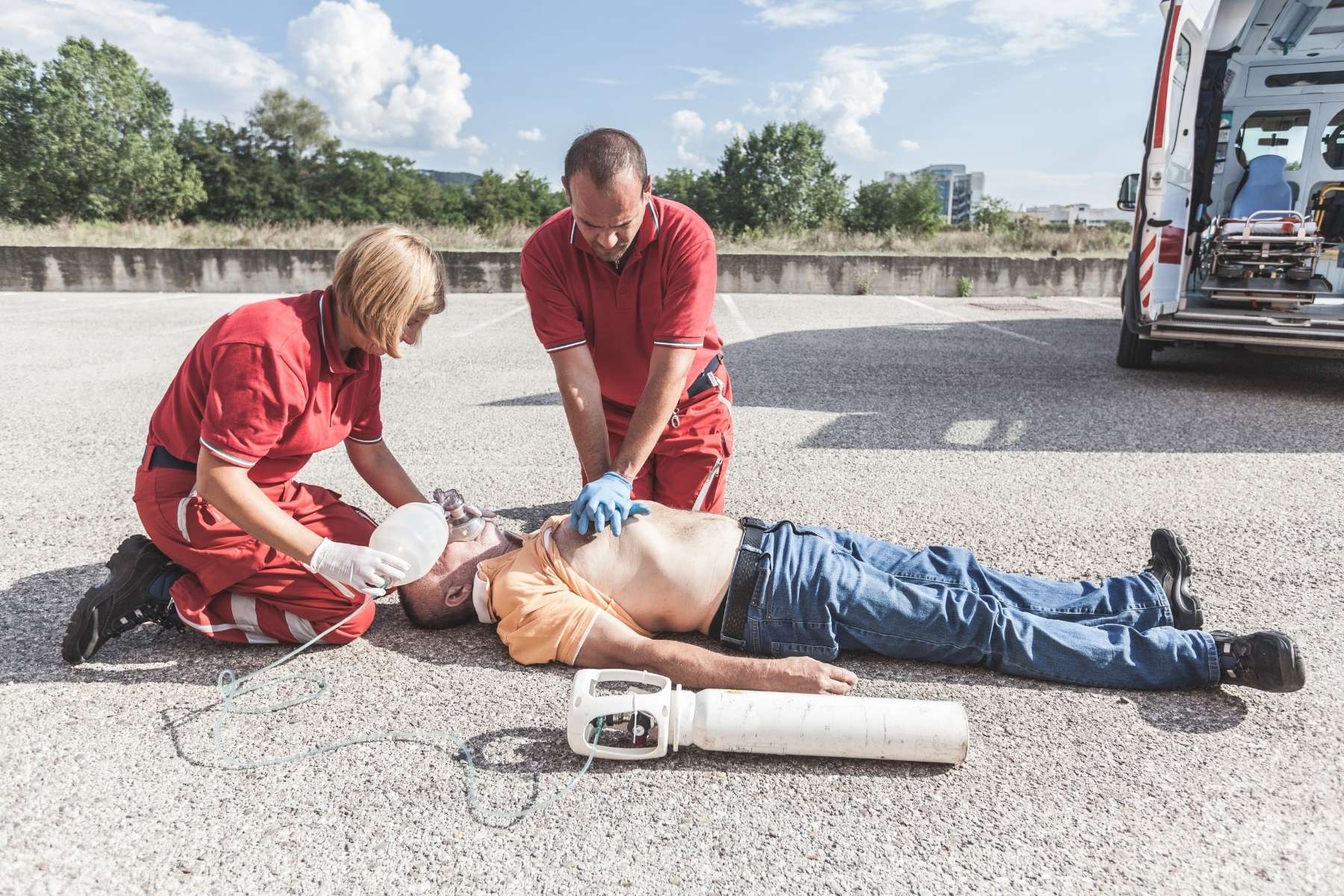
ABCDE do trauma tudo o que você precisa saber do protocolo!

XABCDE do trauma Aph
![THE ABCs OF TRAUMA [PRIMARY AND SECONDARY SURVEY] YouTube THE ABCs OF TRAUMA [PRIMARY AND SECONDARY SURVEY] YouTube](https://i.ytimg.com/vi/dzZI4soY4so/maxresdefault.jpg)
THE ABCs OF TRAUMA [PRIMARY AND SECONDARY SURVEY] YouTube
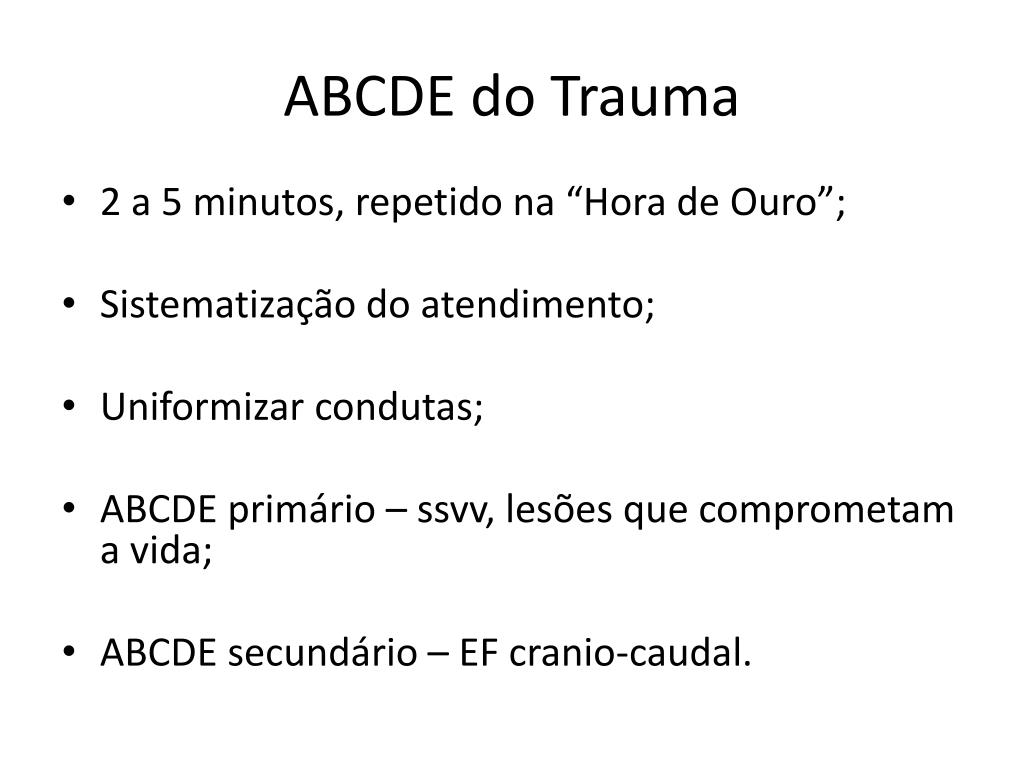
PPT ABCDE do Trauma PowerPoint Presentation, free download ID2105191
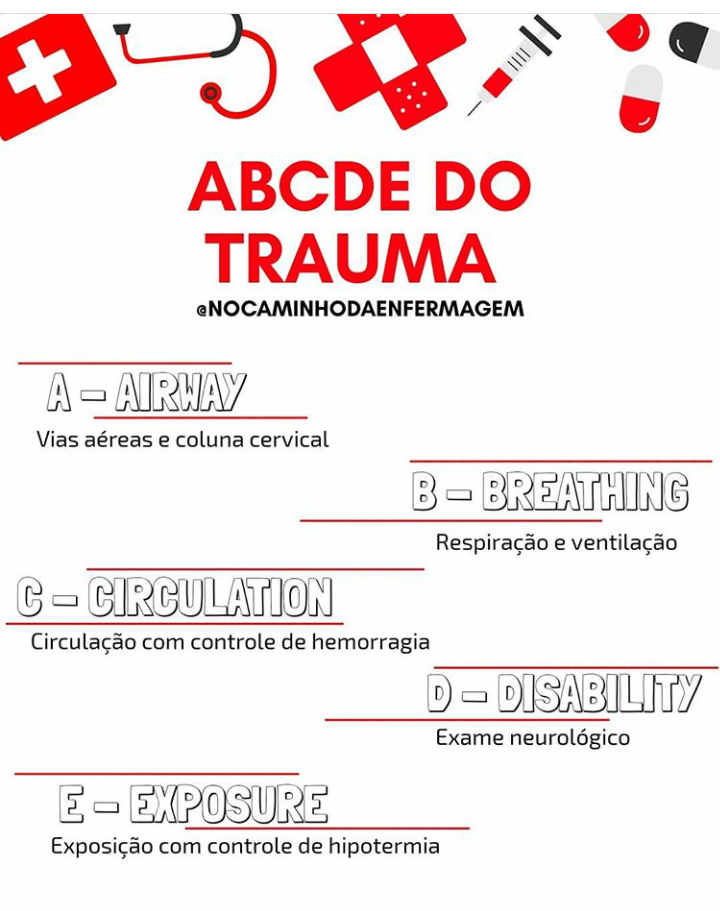
ABCDE DO TRAUMA Urgência e Emergência
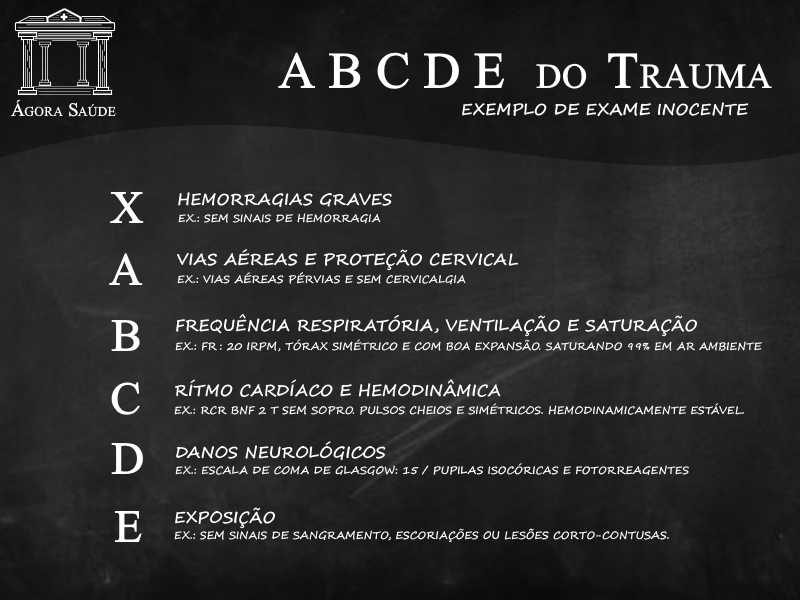
Abcde Do Trauma O Que Significa Cada Letra

Precisamos falar sobre ABCDE do trauma como o que é? E suas causas

Trauma Scoring Systems Trauma Orthobullets

ABCDE Valoración Inicial del Paciente Traumatizado Javier Rios uDocz

Reanimación Inicial en Trauma ABCDEF YouTube

Trauma nursing 1 an overview of major trauma and the care pathway Nursing Times
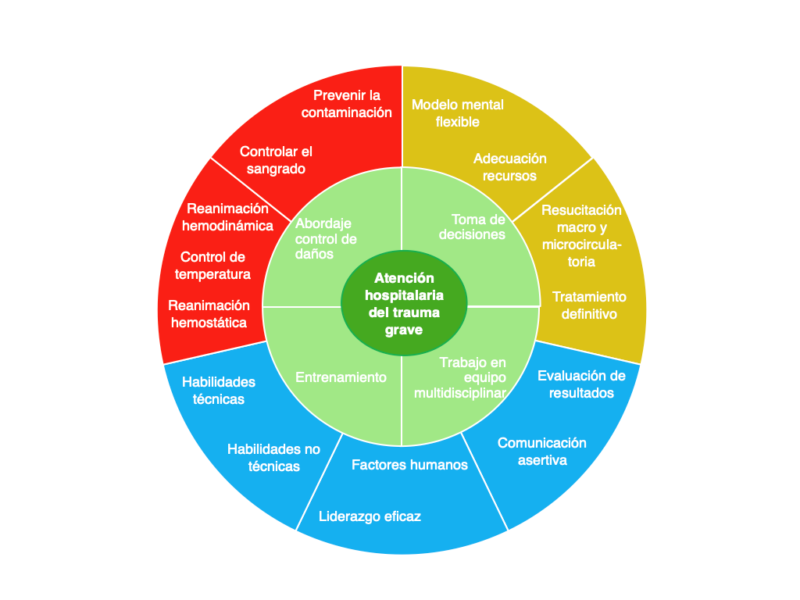
Paciente politraumatizado ABCDE… ¿Qué hacemos después? Manejo durante la segunda hora. AnestesiaR

PHTLS X ATLS, QUAIS SÃO AS DIFERENÇAS? (+ REVISÃO GERAL DO ABCDE DO TRAUMA) YouTube

ABCDE DEL TRAUMA PREHOSPITALARIO YouTube
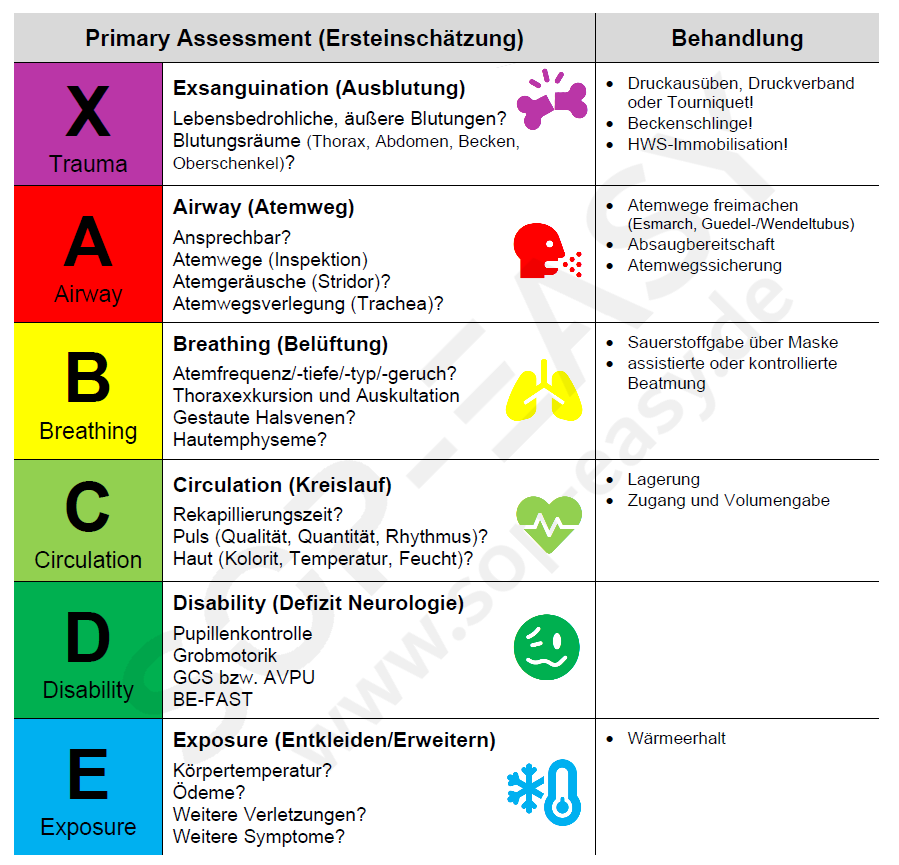
xABCDESchema Algorithmen SOPEASY

El XABCDE del Trauma La Actualización en la PHTLS 9ª edición Enfermagem Ilustrada

ABCDE do Trauma O que significa, Origem e Como Aplicar?

Pediatric Trauma Primary Survey CABCDE C Catastrophic GrepMed

E.M.S. IMMO Protocol for adult trauma patients. The ABCDE concept is a... Download Scientific
ABCDE (trauma) Mind Map
The Guidelines for essential trauma care seek to set achievable standards for trauma treatment services which could realistically be made available to almost every injured person in the world.They then seek to define the resources that would be necessary to assure such care. These include human resources (staffing and training) and physical resources (infrastructure, equipment and supplies).. Major trauma can be defined as "an injury or combination of injuries that are life-threatening and could be life-changing because it may result in long-term disability." 1. Hence, anything causing injury or injuries that threaten life would be considered major trauma. Examples may include: